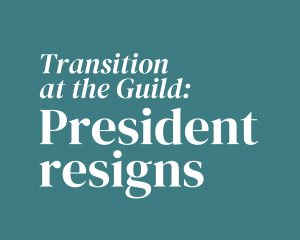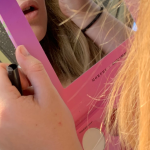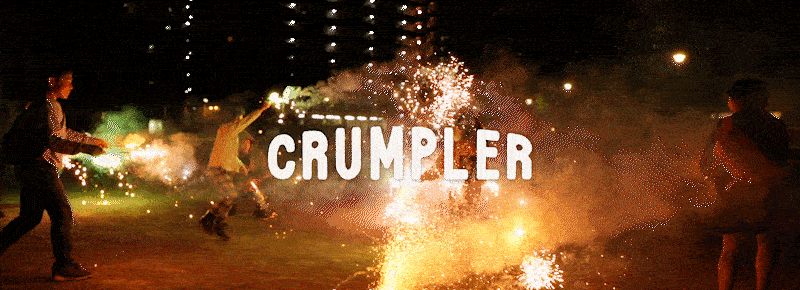One of my earliest memories as a child is shrouded in fear and shame. I would stare up at my ceiling fan as I tried to sleep, figuring out the best way to contort my body so I wouldn’t be injured or die in the rare event that the fan would suddenly fall. A loud voice inside my mind would scream at me to move my bed or turn my fan off. So, I listened and turned it off even though it was the middle of summer in Queensland. However, the voice persisted. It shrieked again, telling me to move my bed because even if the fan wasn’t on, the weight would still crush my weak body. So, I complied and moved my bed. The voice was still not satisfied. I eventually became so exhausted from the constant yelling that I will die no matter what I did that I passed out.
In the years following this, I began to wonder if my mind was a little bit different to other people. Intrusive thoughts plagued my everyday life and manifested into irrational rituals. Mundane tasks such as hanging the washing out, showering, washing my hands and leaving the house would be excruciatingly difficult for me to complete. I would frequently rub my skin raw from frequent washing and would be crippled by the thought of my imminent death if I couldn’t find a peg that matched the colour of my clothes. In school I was constantly late to class because I would spend 20 minutes performing rituals before I ate, and the break only lasted for 10.
At 16, I was diagnosed with OCD, and a wave of relief washed over me. While I was worried about what my future would look like, I felt assured, knowing it was a disorder that was hijacking my brain and not who I truly am. My OCD takes the stereotypical form that many people associate with the disorder, including contamination, ordering and checking. However, I also experience intrusive thoughts that I have never felt comfortable sharing because of their shame and guilt. Pop culture and the media tend to trivialise OCD despite affecting 2% of the Australian population.
We see this in the character of Monica Geller in Friends, Sheldon Cooper in The Big Bang Theory, and celebrities like Khloe Kardashian using the pun KhlO-C-D to refer to her YouTube channel where she shows people how to be more organised. The reality of OCD is not a cute and quirky way of saying you like things to be clean and organised. It’s a debilitating illness that haunts the people who suffer from it.
A show that has acted as a beacon of hope for me is You Can’t Ask That. They recently produced an episode on OCD that delves deeper into the true lived experience of everyday Australians who have the disorder. One participant stood out for me in particular. I had never heard a more raw and honest depiction of the illness, let alone on national TV. Martin Ingle answered each probing question thrown his way with a sense of candour and willingness. I got in contact with him after I finished watching to express how meaningful it was to hear someone talk about their experience with intrusive thoughts. I sat down with Martin to ask him about his relationship with OCD and how the true lived experience differs from colloquial perception.
What were you like as a child? In later years did you notice any warning signs that you may have OCD?
I was definitely a quiet, shy and deep-thinking child. Looking back, you can always find evidence whether it’s there or not, but I definitely didn’t have OCD back then – I was just lost in my own world. Perhaps that just set a good foundation for OCD to flourish later!
When did you realise there was something different about your mind?
My OCD started out of nowhere when I was 23. This might be confusing to hear – how can I know when it began so specifically? Honestly, I can break my life into before OCD and after OCD. The difference was huge and obvious. It was like suddenly I had my thoughts, memories and personality transplanted into a different brain. I was experiencing the same world but using a completely different machine. Some people with OCD can even nail it down to one specific thought that started it! Mine kicked in over a period of a few weeks.
For those people who are unaware of the complexity of OCD, how would you describe it?
I almost don’t like to start by even saying “OCD” because people think they already know what it is, and they switch off. In reality it’s about distressing, unwanted intrusive thoughts. Everyone has these thoughts — maybe I could steer into oncoming traffic, what if I don’t really love my partner, why did I just have a sex dream about a family member — but someone with OCD gives these unwanted thoughts more meaning and want to do anything they can to make them go away.
These intrusive thoughts can focus on any topic at all. One of those topics can be germs or cleanliness, absolutely – that’s the picture of OCD we know of. But the truth is you can get obsessed with anything. If it upsets you, OCD can latch on to it. It’s often horrible things like harming people or sex or violence. The more you try to make the thoughts go away, the more they come. It’s a vicious cycle.
Some people describe depression as a dark cloud being held over their head, or not being able to climb out of a deep pit. How would you describe OCD in this way?
Oh, I’d describe OCD as feeling sort of drunk on your thoughts, but not in a nice way. It’s very overwhelming and traps everything in its grip. Like quicksand for your thoughts. You can’t escape, particularly the harder you struggle.
Many people assume OCD means frequent hand washing and turning light switches on and off. While these are rituals that fall under types of OCD, they’re not the only forms. How does your OCD manifest?
Totally! Some people with OCD obsess over germs or sickness, so they wash to try to make the thoughts go away. My intrusive thoughts are mainly about sexual topics. I’m afraid I could secretly be dangerous or sexually perverted – so secretly that I don’t even know it myself. I’m constantly on the lookout for internal evidence that this might be true so that I can protect the world from myself. This is fucking torture to experience, and even more difficult to talk about it publicly – like here!
They call this sort of OCD “Pure O”. It’s exactly the same as a person with OCD who obsesses over germs, but the compulsion isn’t visible like washing is. It all happens in my head. From the outside you wouldn’t know anything was wrong at all.
It’s really important to make clear that whatever your intrusive thoughts are, they are 100% unwanted. People who have unwanted thoughts about sex or violence don’t get pleasure from them any more than someone afraid of germs gets pleasure from theirs. It’s actually the opposite: people with OCD who obsess about a topic want to do anything they can to get away from it. They are actually the least likely people to get sick from germs and the least likely to be dangerous, because they worry about it so damn much.
For myself, I felt a sense of relief when I was diagnosed with OCD as it helped me recognise that my thoughts and behaviours weren’t my own, they were a disorder. How did you feel when you were diagnosed?
There’s a great scene in a 2019 UK show called Pure (it’s on Stan) where the main character finally discovers she has OCD and realises that she isn’t actually dangerous and breaks down crying in a library. To learn your intrusive thoughts are uncontrollable and not your fault is such a gift, and I reckon most people with ‘Pure O’ remember this moment. The problem is many people still don’t know that this type of OCD exists, which means there are so many people silently suffering. There are people all around us with OCD who have no idea they have OCD. They think they are secretly dangerous, and so they’re too terrified to tell anyone about their thoughts. I know these people exist because I was one of them.
In the You Can’t Ask That episode on OCD, you said, “if someone could guarantee me that if I chopped off my own arm, I would never experience OCD again, I would go into the kitchen right now and do it”. Do you think the general public is aware of how damaging OCD is for the people suffering with it?
I actually heard a guy with OCD in a doco say that a few years ago; I instantly knew I would do the same thing. Another cliche is to say, “I wouldn’t wish this on my worst enemy”, but I truly wouldn’t. I think people are vaguely aware that OCD can affect your life; they just don’t know the full extent of the damage. They don’t know the true face of OCD. At my worst, it grew and infected every part of my life: I couldn’t work, I could hardly sleep, I couldn’t even go to the toilet. It’s there at every moment of every day.
How would you describe the difference between anxiety and OCD?
I had general anxiety before OCD – anxiety attacks, nausea and stuff – so, in the beginning, I assumed the OCD was just an extreme version of that. The difference between my anxiety and my obsessive intrusive thoughts was so extreme you almost can’t compare, though. There’s really nothing I could have told my past self that would have prepared me for what I was about to experience after OCD hit. For me, it is similar to anxiety but 1000x worse.
How does your OCD affect your social and romantic life?
OCD grew to affect every single part of my life, but the worst impacted was my romantic and sex life, without a doubt. I was so terrified of getting a disgusting, intrusive thought that I went about six years without masturbating – and a couple of those without any sexual release at all. I was basically celibate by choice, not because I didn’t want to have sex but because I couldn’t stand to be alone with my own brain while doing it. I was too terrified of what thoughts it might throw me next.
Trying to date with this kind of OCD is next to impossible, too. You obviously can’t tell your partner about it because it’s too shocking – and that’s even if you’re lucky enough to know you have OCD in the first place.
Rose Cartwright talks about the darkness of living undiagnosed with this kind of OCD as feeling like you have a body buried in your backyard and nobody knows except you. You are expected to go on living life normally—reading the daily paper, going to work, taking a lunch break, calling your mother—you are doing all these really mundane or perhaps even enjoyable things, all while this body is buried in your backyard.
You feel like an imposter. Maybe you are that guy who moves to a small town, and everybody thinks is really nice until they discover he was a serial killer on the run and skinned cats in his bathtub while singing Wagner or something. You fear that is you. And you despise it. But you can’t stop thinking it.
How does it affect your study and work?
When I was at my worst, I hardly worked at all. I chewed through all my savings, going to extra psychologist appointments and buying food out because I couldn’t prepare anything in my own kitchen. I know I lost loads of work because I missed deadlines or meetings, sometimes with no explanation at all.
Once, I turned up to a meeting two hours late because I was at home, over the sink, gouging under my fingernails with a butter knife because I thought there could be some remnants of my semen or “dick germs” under there, and I didn’t want to spread that out in the world because to me that would essentially be immoral. Like I was sexually assaulting people, or worse – that I might be getting secret pleasure out of it. And that’s just one example!
The fear is the most important thing to you, and you’d do anything to make it go away. So, of course, you sacrifice your health, your looks, your job, everything. I washed my penis so much my foreskin started to peel back and bleed. I chose to do this to myself rather than have my fears come true. So yeah, everything in your life takes a back seat to OCD.
Do you try to conceal your OCD from people around you? If so, why? Alternatively, do you feel like you have to pre-emptively warn people of your OCD so you can explain your behaviours/thoughts?
I don’t conceal OCD anymore. OCD is hard enough to deal with on its own. To add the pressure of having to hide it from people is too much of a burden for me. Being honest about it is a weight off my shoulders and means I can focus on the actual illness, not trying to hide the illness.
It’s like a mushroom or a fungus that grows more in the dark. For me keeping it secret kept feeding it. So, what if I did the opposite? What if I made my greatest weakness, the thing I am most ashamed of, my greatest strength? When I did that, I learned there was really nothing to fear. Your OCD wants you to stay silent because it knows that makes it stronger.
How do you feel when people say they’re ‘a little OCD’ because they like to be organised and clean?
I know a lot of OCD folk who hate it when people say they’re a little OCD. I definitely think you should never say that to someone with OCD – it’s very hurtful. I feel when people say things like that, it’s mostly out of ignorance, so I don’t hold it against people. I probably said things like that before I got OCD. It’s not their fault; they just don’t know what OCD really is.
Of course, if you read this and know better and still choose to say shit like that, then you’re a fuckwit, for sure, so pull your head in.
What is your relationship with recovery? Have you found anything that has helped you to manage your symptoms?
There are many things I’ve tried, but nothing worked as well as therapy (and medication). Meds can take the stickiness out of thoughts a little bit and give you the confidence to tackle therapy. The main therapy for OCD is called Exposure with Response Prevention (ERP), and it more or less involves exposing yourself to your thoughts without doing the compulsion to make them go away. You keep doing this until you aren’t afraid anymore. This therapy is torturous and easy to get wrong if you don’t work with a therapist who knows what they’re doing, but it’s amazing when you feel your brain start to change.
Of course, mostly, it’s about managing the OCD every day rather than curing it. I’ve accepted that I’ll probably live with it forever, and that’s most people’s journey too. It’s a chronic condition, and recovery looks like figuring out how to live in spite of it, not without it.
If you could leave the audience with one thing, what would you want them to know?
To say OCD is about a compulsion like washing your hands is like saying the flu is about blowing your nose.
We all have a brain, and we all have thoughts. People with OCD are like the canary in the coalmine of thoughts. Our brains force us to go to extreme places that are actually relevant to everyone, but most people have the luxury of not worrying about. Everyone has intrusive thoughts, so I strongly believe this stuff is relevant to everyone with a brain.
I really like talking to people about their thoughts because most people believe whatever their brain throws at them. We’re taught to believe our thoughts. OCD teaches me that thoughts are actually pretty meaningless, life is chaotic, and there is no control. Someone with OCD accepts this every day, but we actually all have to accept this to live a life worth living at all.









